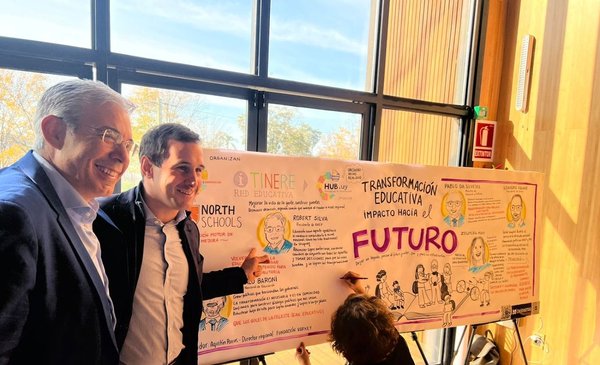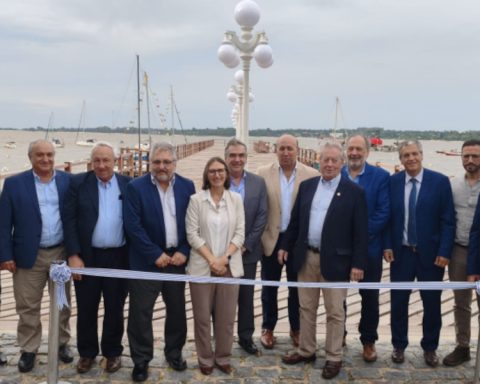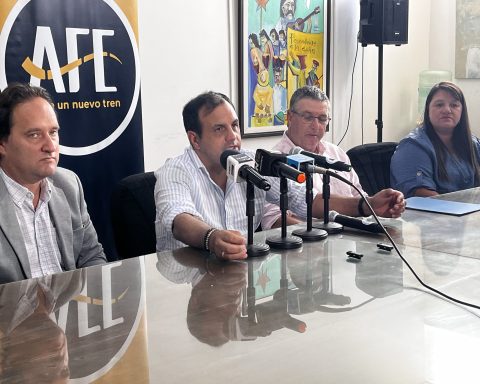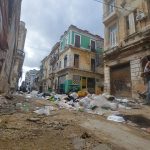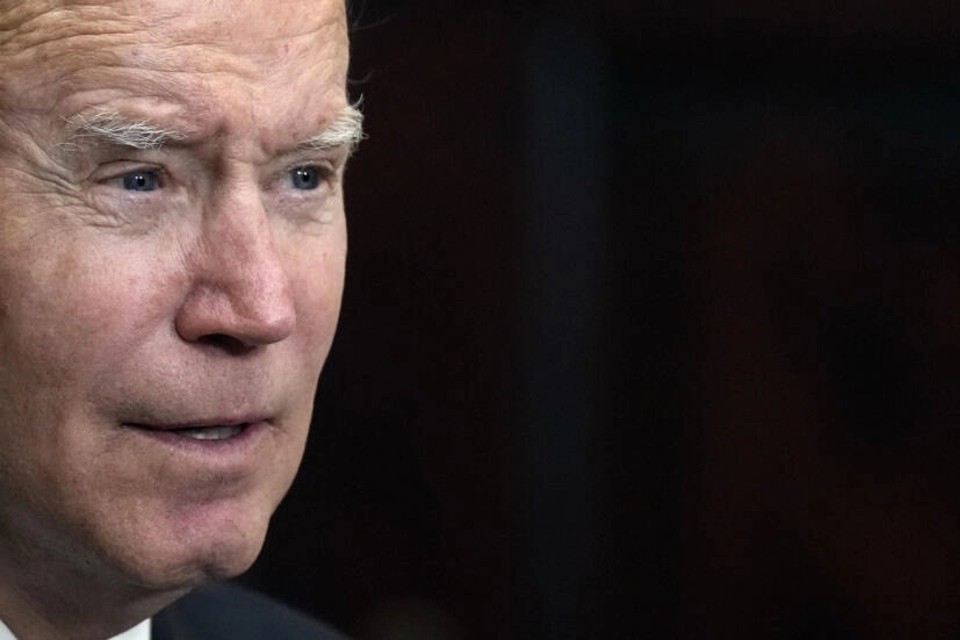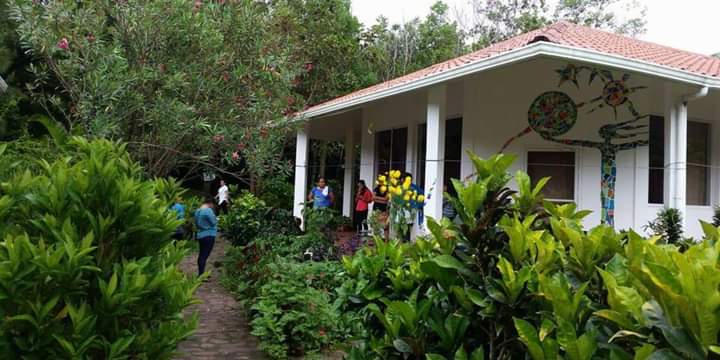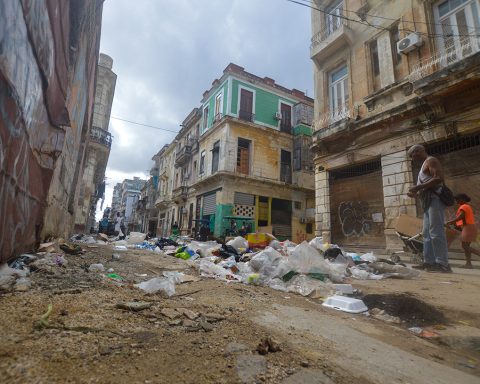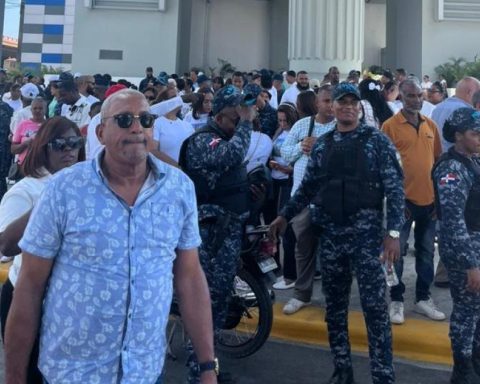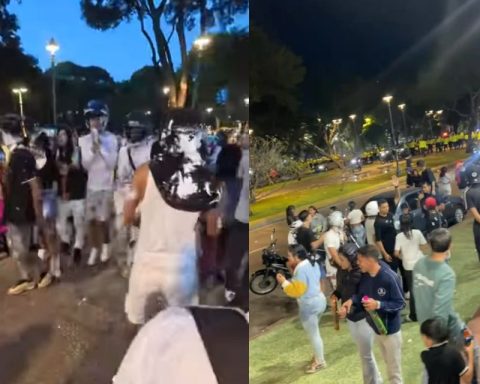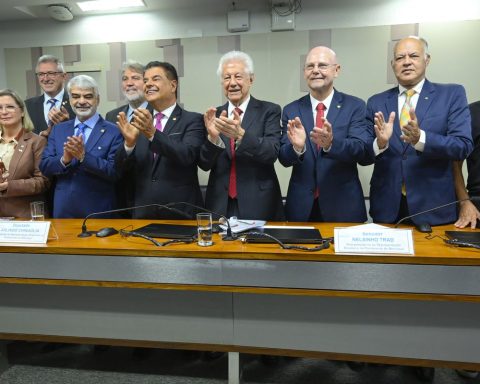With colored markers, a woman draws the faces of Pablo da SilveiraMinister of Education and Culture, Gonzalo BaroniNational Director of Education, Robert Silvapresident of the Anep Codex, Leandro Folgarpresident of Ceibal, and zelmira mayUnesco education program specialist.
On paper, the faces orbit the theme of the event that summons them: Educational transformation, impact towards the future. The illustrator continues with her strokes – fills in letters, draws scenes – when the flesh and blood models appear in the North Schools building in Ciudad de la Costa.
They sit next to the blackboard holding the illustration. The auditorium is already full, but there is no one at the lectern to which all eyes are directed.
A female voice asks for the director. “What this? Who is responsible?”, insists. The voice moves on the backs of the public, it goes through the aisle between the seats. The torsos turn uncomfortably.
“When everyone expects what has to happen, and it doesn’t happen. What happens?” says the woman. “Maybe the important thing.”
Keep talking and highlight the discomfort, celebrate it. He speaks of the speaker always in front of the public, closer to God.
“Hopefully we will be more uncomfortable in our teaching chairs”, announces before the auditorium, full of educators who came this Saturday to participate in the second HUB.uy: Education & Innovation.
The woman who has spoken so far is called Jimena Folle and she is an Argentine education consultant. She succeeds her in speaking, now at the lectern, the bilingual director of the Initial and Primary level, Camila Rainelli.
North Schools integrates the Itínere binational educational networkfounded by the Argentine Darío Álvarez Klar, executive director of HUB.
To Rainelli the minister follows.
Pablo da Silveira delves into the change in role that the teacher must have and highlights the importance of “educational networks and communities”.
“The authorities fail to transform education. Education is transformed into the day-to-day of educational communities. This supposes a new conception of what teachers are,” he says in his speech.
The vision between industrial and military of educational life no longer has a place”, ensures. “We have to think of the teaching profession in a different way,” she says. The minister says that the “most productive way” to do it includes “two elements”.
“One is that teachers are researchers in practice, looking for better ways to generate learning,” he says on the one hand.
“The second component is, and this is an example, the network of educational communities. If an educational community manages to do beautiful things, but it is not visible to the other communities, it does not have dialogue, it cannot transmit what it has learned, nor incorporate other challenges, the effect will be very local. The important thing is educational communities that, in addition to investigating new ways of generating learning, are connected to each other”.
Da Silveira finishes his speech, cuts the opening ribbon of the event, and leaves.
Education: “the last leap”
Agustín Porres, regional director of Fundación Varkey –an international charitable foundation that promotes educational excellence for all children–, moderates a panel on the Uruguayan educational transformation that includes Silva from Codicen, Baroni from the ministry, Folgar from Ceibal and May from Unesco.
matthew piaggio
There, the Uruguayan authorities agree on the importance of the country’s education is up to par with other aspects that always deserve praise internationally. Folgar says that education has to be “the last leap.”
“We are certain that we are very close to taking a very important leap at the country level. Uruguay has incredible indicators at the level of stability of the institutions, the democracy index, technological development, at economic levels it has continued to grow, but one of the issues that we are missing is to take that last leap”, argues the president of Ceibal.
Itínere, HUB and this Saturday’s event
Once the panel ends, several activities begin simultaneously. They vary from the “emotional well-being in education”, artificial intelligence “at the service of human development”, the importance of sports values in education (with Santiago Alfaro and former soccer player and writer Daniel Baldi) and many others.
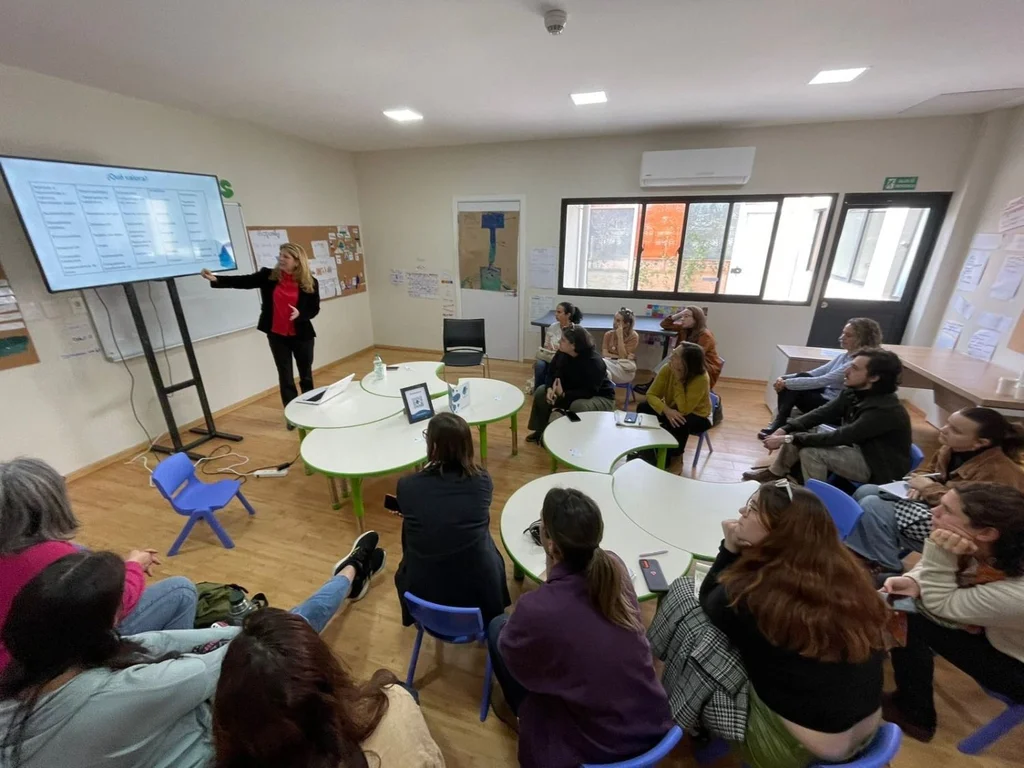
On loan to The Observer
Talk on artificial intelligence “at the service of human development”
In the grid, the name of Robert Silva appears in that of “networks and communities that favor educational transformation” and that of Gonzalo Baroni in “What challenges are presented to universities in relation to the current educational transformation?”.
In the first case, Silva is accompanied by Álvarez Klar, founder of the Itínere network and the Education & Innovation HUB.
Itínere has seven schools in Argentina and one in Uruguay –the North Schools of Ciudad de la Costa–, although in 2025 another will be inaugurated in Punta del Este, Álvarez told The Observer.
On the other hand, HUB is a civil association that was born in 2018 “to think about meetings between professionals in different areas that have to do with innovation and education thinking about not only technology and education, but also human development and teacher training”, explained.
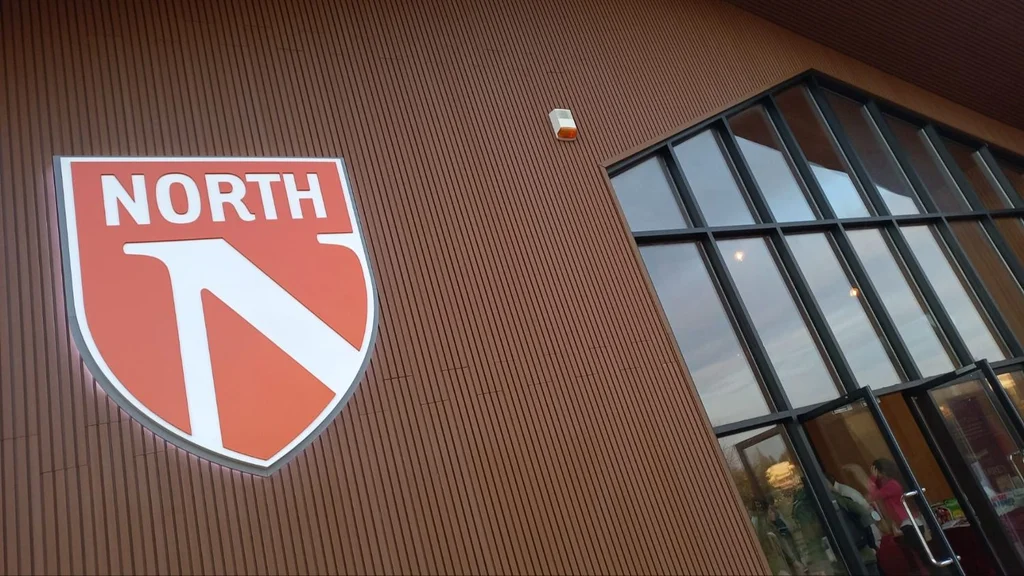
matthew piaggio
international networks
In the second activity where the president of the Codicen participates this morning, he speaks on the importance of educational networks among peersfrom teachers to authorities – both nationally and internationally.
Regarding the first of the last two cases, Silva assures that in the previous government, Anep, the Ministry of Education and Culture, and Ceibal were “confronted”. “The boring and the old was the Anep. The good, the innovative, was the Ceibal”.
“No?” he asks the teachers who are listening to him in one of the North School classrooms. The audience –in this event always in favor of the proposed transformation– laughs and agrees.
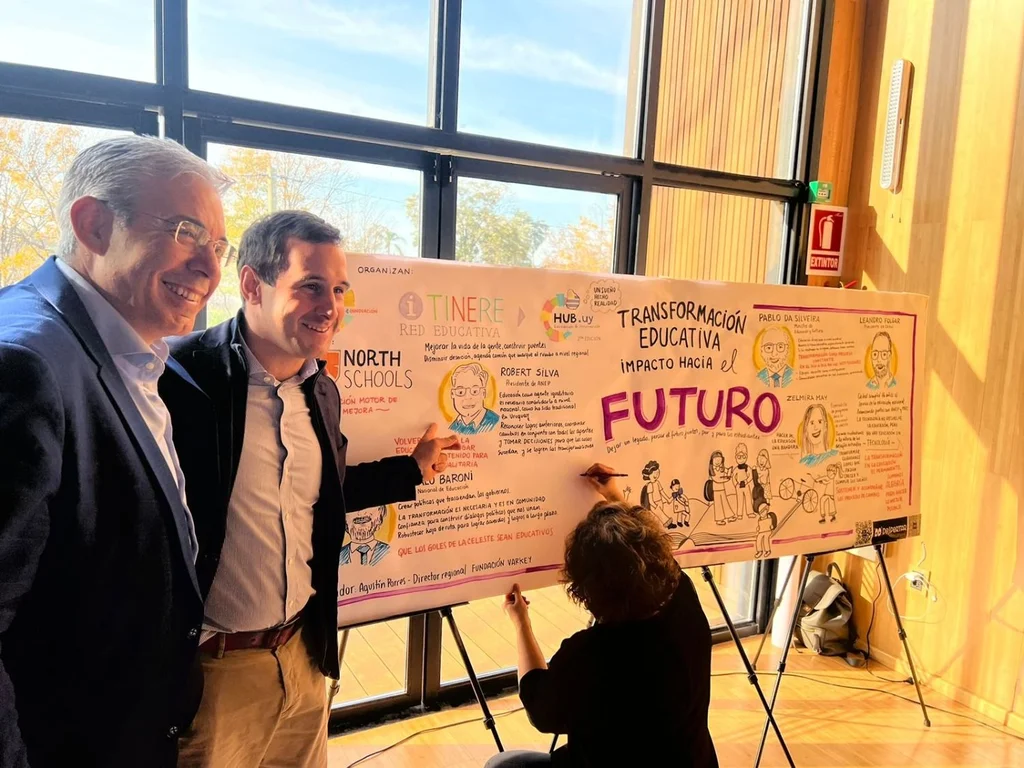
On loan to The Observer
Robert Silva and Agustín Porres, regional director of Fundación Varkey, while the illustrator continues with her work
From the international point of view, Silva refers to the network of Latin American education ministers that was launched in January of this year in Washington.
As reported by La Nación, The idea of the community is to strengthen the links between the hierarchs, exchange ideas and coordinate meetings. It was an initiative of the Varkey Foundation, whose regional director, Agustín Porres, also shares space with Silva in this second activity.
The president of the Codicen was the one who participated in the event in the United States, not Pablo da Silveira.
Porres said that Silva “signed an agreement with the city of Bogotá” after agreeing in a bar during the trip. For his part, Silva added that they also signed an agreement with the Minister of Missions (Argentina) and He also recalled another story resulting from the network of ministers.
Anep is working on a transformation for inspectors. In a work instance, one of the technicians mentioned that in this regard “Ecuador has developed something spectacular.” However, the person who asked him about it did not have contacts to learn more about the Ecuadorian initiative.
“But if I know the Ecuadorian minister, María (Brown) –Silva thought– I’ll call her now.”
He sent him a WhatsApp. “Hello, Maria. This is Robert. We are needing such a thing.”
She responded happily, through an audio where she said “cool” several times, according to Silva’s story. The minister passed him a contact. “With whom we already connect and we are already working on that issue”assures the president of the Codicen.
The challenges of the universities
in the same room, Silva was replaced by Baroni for another talk.
One of the latest news regarding educational transformation is the one that refers to the goodbye to diversified high schoolsas reported The Observer. In the three years of high school, as well as in four years of primary school (from 3rd to 6th), the educational reform will only begin in 2024. Although it is expected that in December the National Administration of Public Education (Anep) ratify the programs, the roadmap has already been published.
Baccalaureate –although perhaps not with that name– will no longer have the scientific, humanistic, biological and artistic orientations, but they will practically attend a general baccalaureate.
The logic behind is that six out of ten university degrees offered in Uruguay do not require specific guidance. In addition, the global trend points to a solid training in the skills that allow the young person to adapt quickly and effectively to changes.
And precisely, this Saturday the director of Education was summoned to speak about whats challenges that are presented to universities regarding educational transformation.
Baroni is accompanied by representatives of the ORT, the Catholic University, the University of Montevideo, the Siglo 21 University of Argentina and, who opened the event, Jimena Folle.
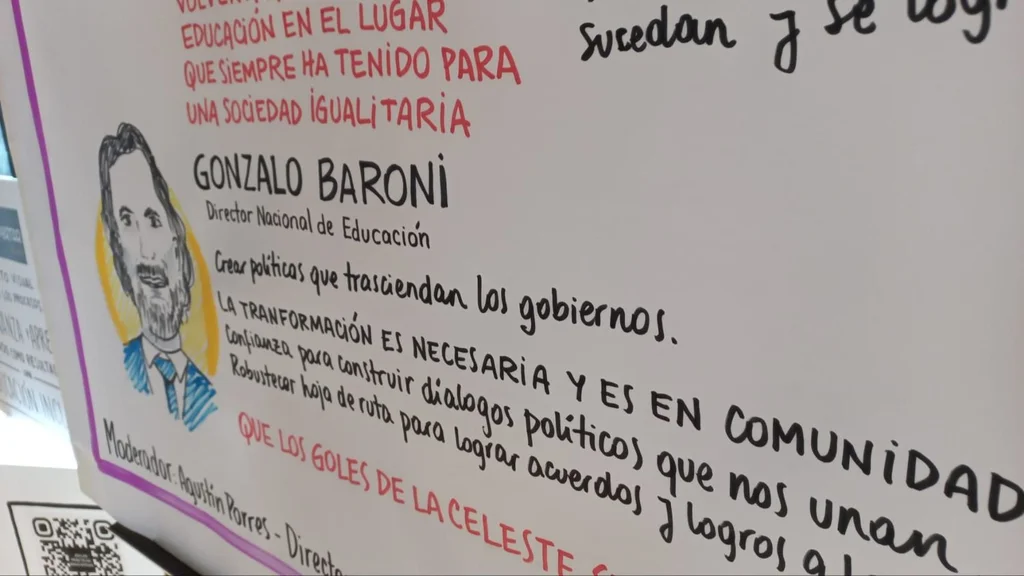
On loan to The Observer
Gonzalo Baroni was one of the authorities present at the event this Saturday
When it is his turn to speak, the hierarch points to two challenges for tertiary education centers, despite the fact that the reform does not affect them.
On the one hand, it points out that in the near future students who enter the university “They will have been permeated by the educational transformation, but at a very low level or probably not at all.” In this way, given the lack of education in skills –instead of content, the core of the old system– universities they should just provide it.
But also, “in the next five, six, ten years they will begin to receive people who have a competency-based approach”, who “have a teamwork approach, where the teacher instead of standing in front is on the side” . According to Baroni the students will be “more critical beings, who went through a pandemic and (therefore) the tolerance threshold for frustration is different.”
The national director of Education says that universities cannot waste time in adapting. For Baroni they must “have a process of constant change.” “Universities have to change quickly, otherwise They’re going to start to leak to other places.”
